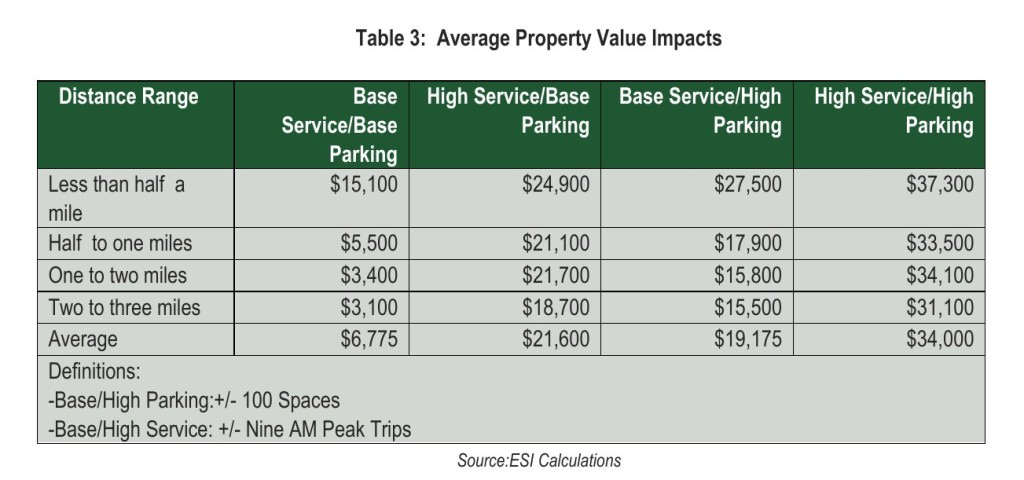This is really nothing new, except that it is a new data about an old truth:

Analysis of Philadelphia suburban data shows that people are willing to pay more than fares for rail transit, as indicated by house prices in areas near the stations. These are really land prices since characteristics of the houses are already filtered out. Interesting to see that people living more than a half-mile from the station seem willing to pay more for frequent service than for extensive parking, but I wouldn’t want to conclude too much from this limited analysis. The study considers only parking and frequency of service, nothing about travel time, availability of feeder bus, or anything else, but the main point remains. See the full report here.